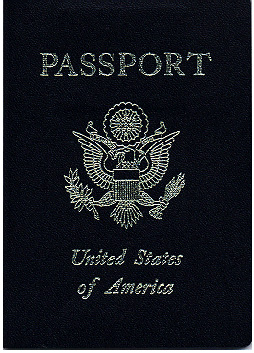Offshore
HNW Americans Smile On "Golden Visas" – And What's Next

A marker for globalization and the degree of unfettered movement that people enjoy, the market for citizenship/residency-by-investment has developed rapidly since early days when it was dominated by a handful of jurisdictions. Despite controversies, it remains vibrant. We talk to a large law firm about the sector.
The global market for citizenship/residency-by-investment – sometimes dubbed “golden visas” – has come a long way since the sector was initially dominated by only five English-speaking countries: the US, the UK, Canada, Australia, and New Zealand. Countries ranging from Portugal to the UAE and Singapore now operate them.
One sub-theme in all this is how US citizens have been looking for overseas options, concerned about domestic politics and social conditions, Jean-François Harvey, founder and managing partner of Harvey Law Group, which says it is the largest international law firm specializing in investment immigration, told this news service.
Harvey, who has been an immigration lawyer for 32 years, is based in Hong Kong, where he has lived for the past 20 years. “Most of our American clients are worried about the country and its social integrity. As for Canadians, they want better weather and lower taxes,” Harvey said.
One odd-seeming feature is that Americans who lean right in their political views – typically Republican voters – seem keener on leaving America, as opposed to center-left voters on the coast. Harvey said this phenomenon is not always easy to explain, reflecting on the upcoming US Presidential election.
But on the flipside, the pull of the “American Dream” – a land of opportunity – remains powerful. “There are plenty of non-Americans who want to be in the US,” Harvey said.
Traffic also goes the other way. There is the US EB-5 Immigrant Investor Program, for example. To be eligible, one must put up at least $800,000; processing time can take anywhere between 12 months to three years. A person is eligible for citizenship after five years of legal residence. Canada operates a start-up visa program, and there is also an investor program in Qebec.
Doors open and others are closed
The market is in constant flux. While countries can sometimes cut
or suspend visa schemes – as with Spain a few days ago, and the
UK with its Tier 1 Visa in 2022 – competition for capital inflow
and entrepreneurial knowhow will keep the market busy, predicts
Harvey.
Europe, with countries such as Italy, Greece, Ireland, Malta and Portugal, has been busy.
“We have had so many [visa] programs open up. There are so many options now and everyone can find what they need. There is a lot of competition between countries to attract people,” Harvey said.
Politicians have attacked these visas, such as those in the European Union. In one example, members of the European Parliament have berated Malta, an EU member state since 2004 and a former British possession, for its citizenship program, saying it facilitated money laundering into the bloc. (Malta has capped and changed its programs.)
Organizations such as Transparency International, which focus on fighting bribery and corruption, have been critical. A 2021 report by the London School of Economics said the programs attract around €3 billion ($3.19 billion) in investment to the EU annually.
New models keep opening and developing. Hungary, for example, recently announced a new 10-year residence permit, obtainable for €250,000.
Not all programs are aimed at high net worth individuals. Some, such as the UK’s Innovator Founder Visa, are pitched at builders of business startups. There are also “digital nomad” visas that are part of the remote-working trend enabled by the internet and (relatively) cheap travel.
Taxes, weather and red tape
It is not all a matter of tax and housing costs. Italy, for
example, will be attractive to people for many reasons (scenery,
culture, food, sports, etc.), but there are downsides
(sluggish Italian bureaucracy) to bear in mind. There are
also considerations such as building a network of friends and the
ease, or not, of integrating into a new society, Harvey
continued.
Generalizing about these programs is well nigh impossible, but a few themes emerge. One trend, Harvey said, is families’ desire to live in countries offering high-class education for their children. Because some nations – such as Canada – have caps on how many foreign-born children can attend certain schools, the golden visa route is a way to handle that. This is a particularly important point for Asian families.
Advising on these progams is a money spinner. A cluster of specialist consultancies operate as demand grows. Examples include Bartra Wealth Advisors, Henley & Partners and Apex Capital Partners. An umbrella group – the Investment Migration Council – now operates to spread best practice ideas, lobbying for schemes, and interacting with policymakers.
Just because a program is eventually shut, or suspended, doesn’t necessarily mean that this is a setback, industry figures argue. As explained in this interview, programs can be suspended or axed not just due to external or internal political pressure, but because, so the industry says, a scheme has achieved its purpose of attracting a certain amount of capital.
Language and culture
Harvey said there can be language-group themes, such as how
people from the “Francophone” world linked to France by history
and culture, can seek citizenship. In the more “Anglosphere” side
(not a term that is universally approved of), there are two-way
flows between the UK and Commonwealth member states. South
Africa, while not without domestic challenges, receives enquiries
from residents in the UK, Harvey said. His firm has an office in
Johannesburg: “We are busy.”
For a man with more than three decades’ experience in this market, Harvey seems upbeat about further prospects in a market that, in many ways, is a temperature check on what is called globalization.